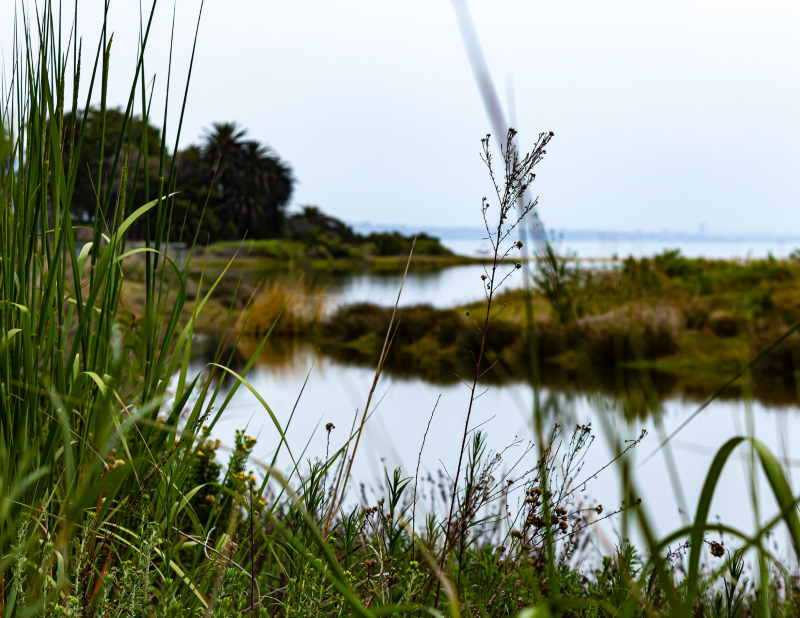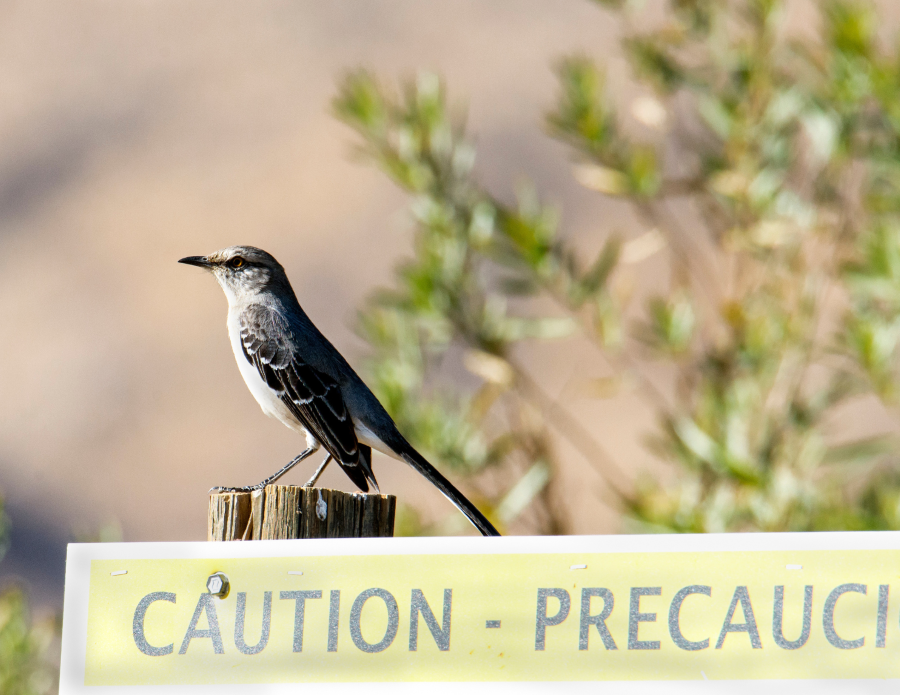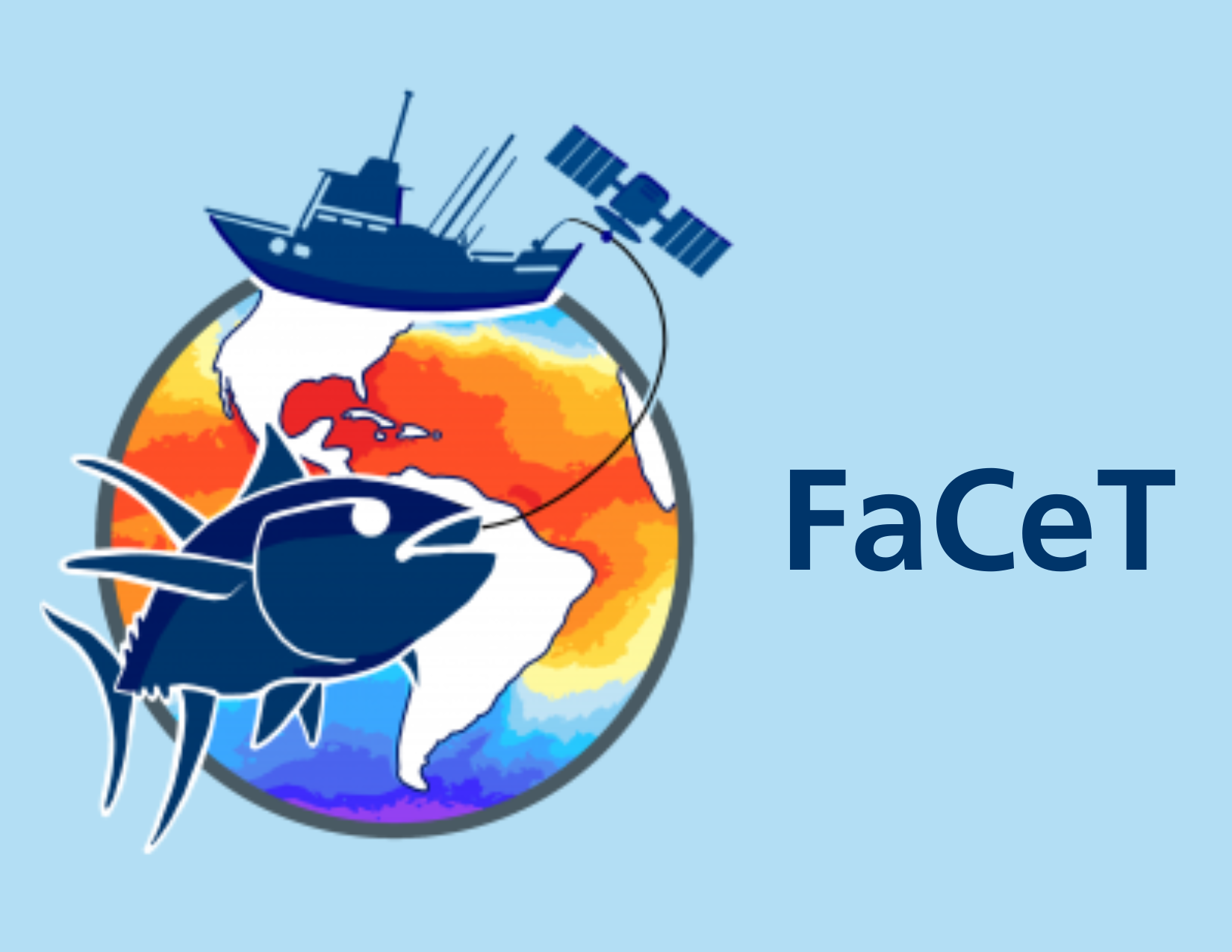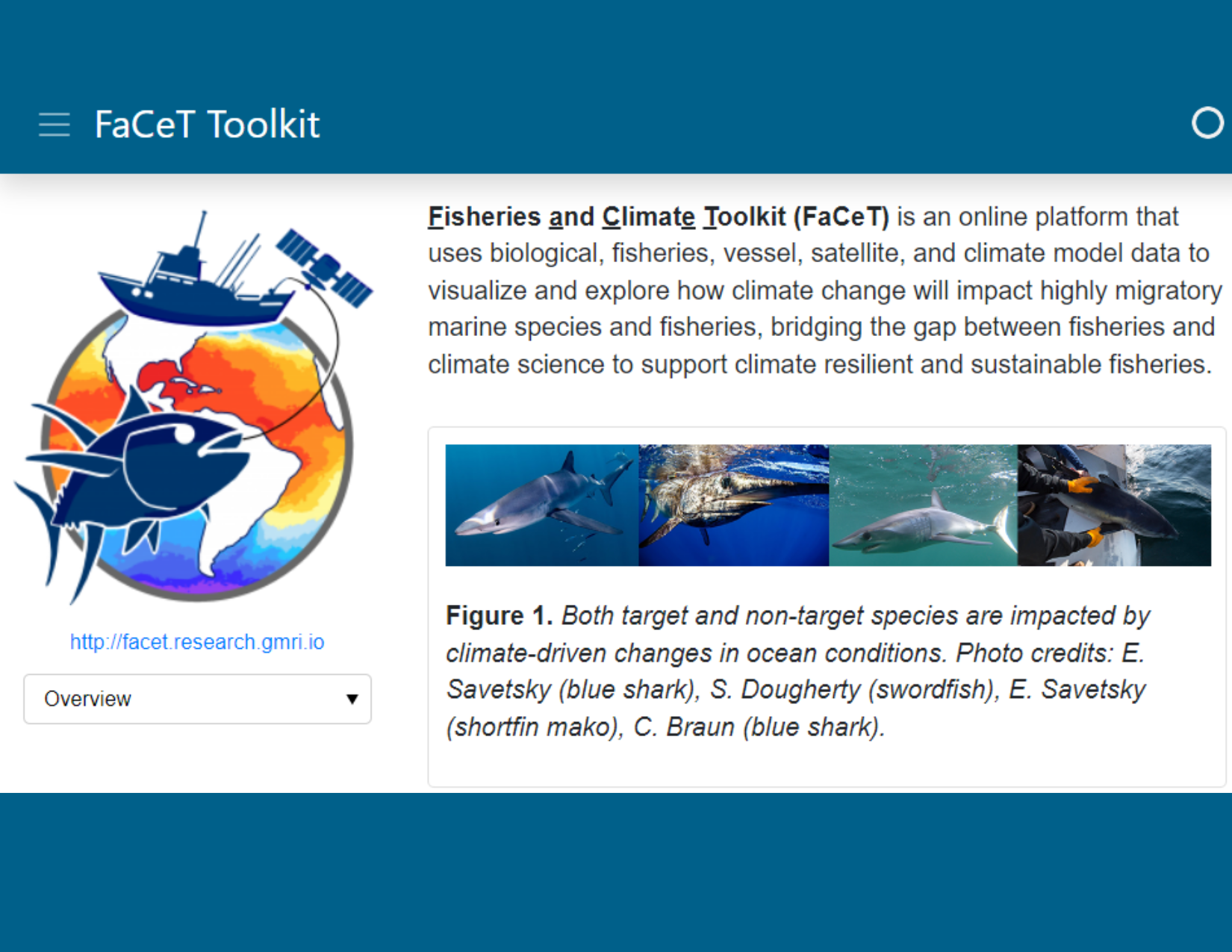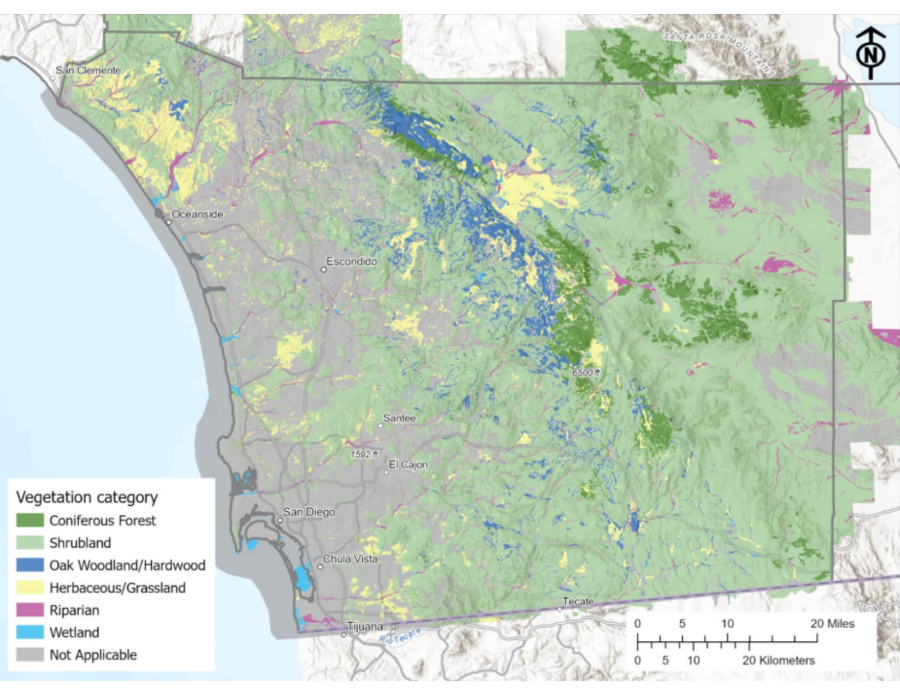Fisheries and Climate Toolkit
The Fisheries and Climate Toolkit (FaCeT) is a bi-coastal platform that allows users to track fisheries-relevant physical and biological ocean features across multiple timescales to support climate-ready and sustainable fisheries.
FaCeT uses the fundamental principles of dynamic ocean management to develop innovative, transformative, and actionable science.
Funded by the National Aeronautics and Space Administration (NASA), FaCeT is an ongoing Biodiversity and Ecological Forecasting project that informs climate-ready and sustainable fisheries practices.
The FaCeT team is developing a set of tools and applications that will:
-
visualize dynamic species and vessel distributions
-
track velocity and magnitude of oceanographic habitat and target species population change
-
inform fishing portfolio diversification
-
address and communicate climate uncertainty in fisheries
Learn more about this project
Project Partners and Collaborators
National Oceanic and Atmospheric Administration (NOAA)
Inter-American Tropical Tuna Commission
Project Funder
More Climate Adaptation Science Projects

This project aims to enhance our understanding of the challenges facing Southern California's montane forests due to escalating threats worsened by climate change. Through multi-jurisdictional collaboration, we are identifying strategies to bolster forest resilience.

